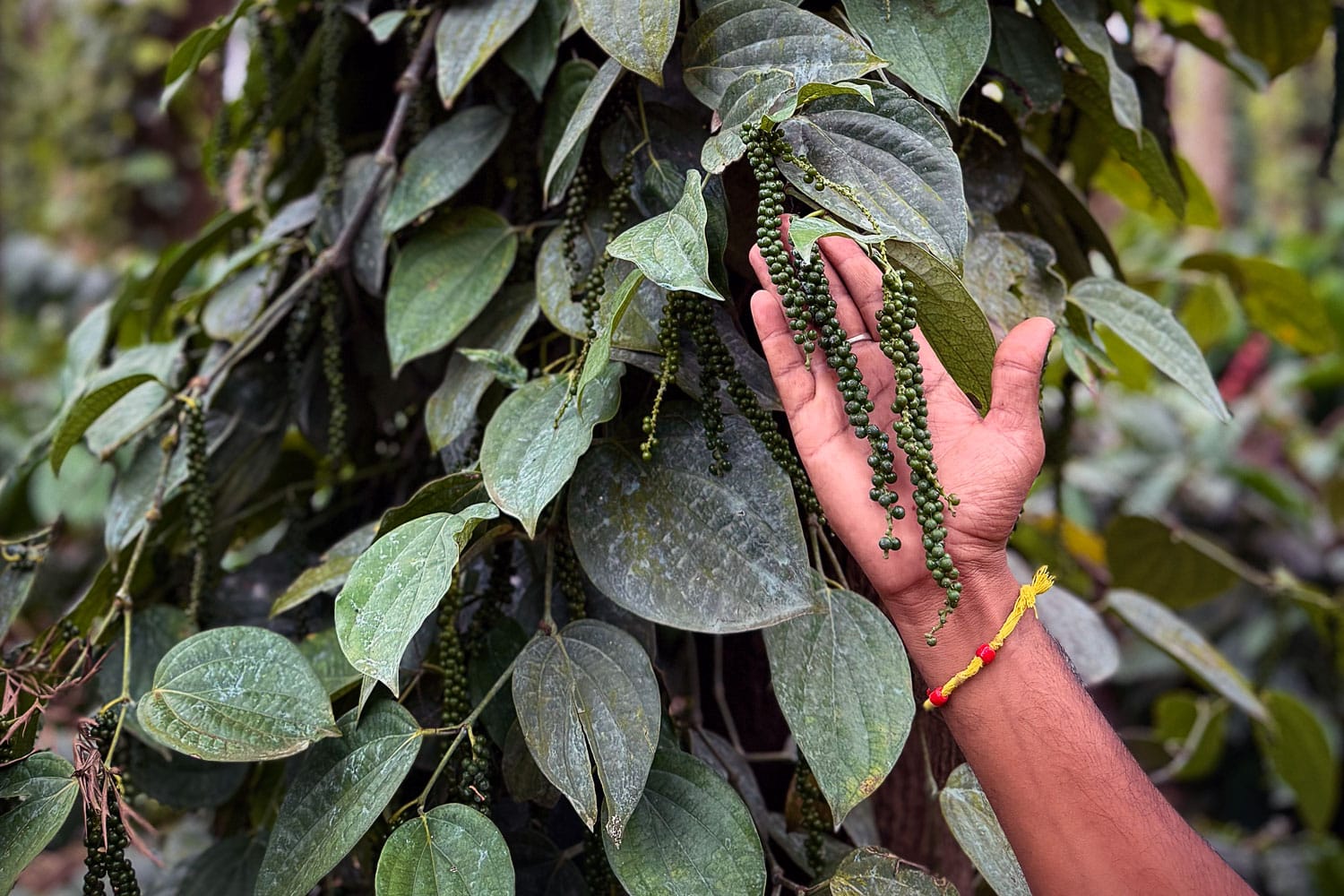Planter’s Diary: Much Salt Over a Little Pepper
Workers gather some pepper for themselves. What worried us was that someone had gone up our bungalow. How much liberty were folks taking?

Mohan called me from the plantation. He’s the foreman there.
“Somebody is drying pepper on the bungalow terrace, sir.”
“But we’re not drying pepper. Hasn’t the dealer taken it yet?”
Only the coffee is picked by our labour. We lease pepper to a dealer, who brings his own men who lodge on the plantation until picking is over.
“Not our pepper, sir. Somebody is drying it for himself. I saw it when I climbed up the bungalow. On plastic sheets.”
Mohan had gone up to see about repairs to the roof.
“Who might it be?”
“Vadhi’s son, sir. He does not deny it.”
Old Vadhi has been caught laying wire traps for wild hares across the plantation. And I had to shout at him once to make him stop bringing visitors to the labour line to his wife: The lady claims God comes upon her when she calls Him. Armed with the Almighty and for a fee, she’s been telling villagers their past and future. She offers to better their future for a little extra.
Vadhi’s son, whom Mohan was accusing, was barely out of his teens.
“Who allowed the boy to climb the roof?”
“He says the guard, sir.”
“What’s wrong with that guard? What’s he saying?”
“He says the boy is lying, sir.”
I called the guard. “I don’t know anything, sir,” he swore. “I don’t know how he went up.”
It is allowed for labourers to gather the little pepper on the ground for themselves after the dealer is done. What worried us was that a workman had gone up our bungalow. How much liberty were folks taking in our absence?
Two weeks passed, and news came that Vadhi’s son was getting married.
The two days of the wedding fell on the same weekend we managed to free ourselves in Bangalore to visit the plantation. The groom’s home in the labour line was decked up with a thorana arch made of banana stems, marigolds, palm fronds, and mango leaves. A vaadya hung about, on call, to play hard-edged pipe music to the accompaniment of rustic drums each time a ritual began.
The music from the vaadya started up again the following morning. The bride would enter the groom’s home today, and more colour had been commandeered for the event: flowers, silks, powders, and such. Relatives on both sides had arrived by rickshaws and small trucks. When the bride arrived, she was led to the groom with a shining, chinari-decorated umbrella over her.
Squealing children got in the way of men and women performing important adult tasks around the couple. With high head decorations, the bride and groom were the tallest in the crowd, the king and queen in the moment.
Afternoon, Vadhi brought his son the groom to the bungalow. He handed me a longish invitation card for the just-concluded wedding. His face was plaintive, different from the insolent one of the last time when I’d raised my voice at him.
“He’s just a boy,” he said, gesturing to his son, who stood behind him, to come up. “He made a mistake. Please let it go this once.”
His son had shed his ceremonial garments and was now wearing black jeans and a blue-striped white shirt. He’d seemed tall, decked up, but now he was just a little over five feet. He was lean and wiry and moved constantly, stepping up and back and to the sides. He had vermilion and sandal paste on his brow. His curly long hair fell about as he moved his head.
“You go,” I told the young man’s father. “I want a chat with your son.”
I sat on a stone bench on the porch. The boy came up to me, came too close, and I had to bend back my neck to engage his eyes. I asked him to step back.
“Tell me,” I said.
“About the pepper.” His voice was not yet a man’s.
“Tell me what happened.”
“I’d put the pepper to dry before my house. The guard saw it and said, ‘It won’t dry there. The ground is wet.’ He asked me to put it on your roof.”
“How did you go there?”
He pointed to the grill that fronted the electrical panels — it went up to the deck. From there, a gangway led to the terrace.
“You know it’s wrong to do that.”
“Yes. But the guard told me to do it. I needed to dry the pepper to sell it. To buy some shirts.”
“Will you do anything anybody asks you to do? Even when it’s wrong?”
“The guard cheated. Because of him, I became a cheat.”
“Did Mohan ask you to do it?”
“No, no. I shouldn’t bring his name into this.”
“What other mischief have you been doing here?”
“Nothing. I’m working all day. Evenings and holidays, I play cricket in the village.”
He was too young for marriage. I couldn’t help thinking how much more of a kid his bride would be. From the direction of the labour lines, a faint smell of jasmine was wafting in. I struggled for next words. I wondered if I should ask how he came by so much pepper—more than permitted a family.
“It’s your wedding day,” I said. “Go.”
And he went.
“God bless you,” I called after him.
This story by me has been published on Medium.
